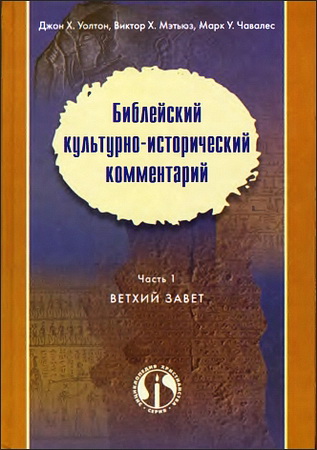
Cambridge Companions - Ethics - книги и модуль BibleQuote
What is it like to make a choice? The temptation we easily give way to is to think that it’s always the same kind of thing; or that there’s one kind of decision-making that’s serious and authentic, and all other kinds ought to be like this. In our modern climate, the tendency is to imagine that choices are made by something called the individual will, faced with a series of clear alternatives, as if we were standing in front of the supermarket shelf. There may still be disagreement about what the ‘right’ choice would be, but we’d know what making the choice was all about. Perhaps for some people the right choice would be the one that best expressed my own individual and independent preference: I would be saying no to all attempts from outside to influence me or determine what I should do, so that my choice would really be mine. Or perhaps I would be wondering which alternative was the one that best corresponded to a code of rules: somewhere there would be one thing I could do that would be in accord with the system, and the challenge would be to spot which it was – though it might sometimes feel a bit like guessing which egg cup had the coin under it in a game. But in any case the basic model would be much the same: the will looks hard at the range of options and settles for one.
But of course we don’t spend all our lives in supermarkets. There are plenty of environments in which this kind of consumer choice is at best a remote dream, where it can sound like a cruel mockery to talk of such choices. And for those who do have the power to exercise such choices, is this model a sensible account of what it’s like to make decisions in general?
The Cambridge Companion to Christian Ethics
Edited by Robin Gill, 2nd edition 2012
Part I The grounds of Christian ethics
- 1. Making moral decisions. Rowan Williams
- 2. Moral traditions in eastern and western Christianity. Robin W. Lovin
- 3. The Old Testament and Christian ethics. John Rogerson
- 4. The gospels and Christian ethics. Allen Verhey
- 5. The epistles and Christian ethics. Stephen C. Barton
Part II. Approaches to Christian ethics
- 6. Natural law and Christian ethics. Stephen J. Pope
- 7. Virtue ethics. Jean Porter
- 8. Gender and Christian ethics. Lisa Sowle Cahill
- 9. Liberation ethics. Tim Gorringe
- 10. Christian ethics in Asia. Peniel Rajkumar
- 11. Christian ethics: a Jewish perspective. Ronald M. Green
- 12. Other faiths and Christian ethics. Gavin D’Costa
Part III. Issues in Christian ethics
- 13. Christianity and war. R. John Elford
- 14. The arms trade and Christian ethics. Robin Gill
- 15. Social justice and welfare. Duncan B. Forrester
- 16. Ecology and Christian ethics. Michael S. Northcott
- 17. Business, economics and Christian ethics. Max L. Stackhouse With David W. Miller
- 18. World family trends. Don Browning
- 19. Sexuality and religious ethics. Robin Gill
- 20. Christian ethics, medicine and genetics. James F. Childress
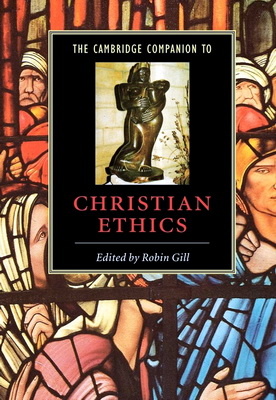
The Cambridge Companion to Christian Ethics
Edited by Robin Gill, 2005
Part I - The grounds of Christian ethics
- 1 - Making moral decisions. Rowan Williams
- 2 - The authority of scripture and Christian ethics. Gareth Jones
- 3 - The Old Testament and Christian ethics. John Rogerson
- 4 - The gospels and Christian ethics. Timothy P. Jackson
- 5 - The epistles and Christian ethics. Stephen C. Barton
Part II - Approaches to Christian ethics
- 6 - Natural law and Christian ethics. Stephen J. Pope
- 7 - Virtue ethics. Jean Porter
- 8 - Gender and Christian ethics. Lisa Sowle Cahill
- 9 - Liberation ethics. Tim Gorringe
- 10 - Christian ethics. Ronald M. Green
- 11 - Other faiths and Christian ethics. Gavin D’Costa
Part III - Issues in Christian ethics
- 12 - Christianity and war. R. John Elford
- 13 - The arms trade and Christian ethics. Robin Gill
- 14 - Social justice and welfare. Duncan B. Forrester
- 15 - Ecology and Christian ethics. Michael S. Northcott
- 16 - Business, economics and Christian ethics. Max L. Stackhouse
- 17 - World family trends. Don Browning
- 18 - Christian ethics, medicine and genetics. James F. Childress
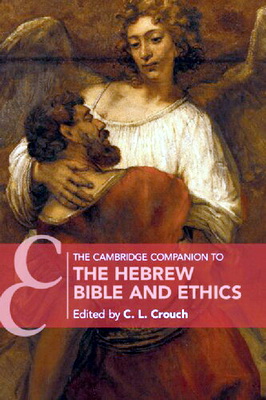
The Cambridge Companion to the Hebrew Bible and Ethics
Edited by C. L. Crouch, 2021
- Introduction. C. L. Crouch
Part I - Legal Ethics
- 1 - The Decalogue: An Icon of Ethical Discourse. Dominik Markl
- 2 - The Talionic Principle and Its Calibrations. Sandra Jacobs
- 3 - Community Violence in Deuteronomy. Caryn A. Reeder
- 4 - The Construction of Gender Roles in the Book of the Covenant and in Deuteronomy. Carolyn J. Pressler
- 5 - Economics and the Law. Albino Barrera
Part II - Narrative Ethics
- 6 - Creation Ethics in Genesis. Matthew Richard Schlimm
- 7 - Migrant Ethics in the Jacob Narratives. C. A. Strine
- 8 - Settler Mandates and the Book of Joshua. Mark G. Brett
- 9 - David’s Ethic of Togetherness and Its Victims. Richard G. Smith
- 10 - Ethics and Ethnicity in the Deuteronomistic History. Brian Rainey
Part III - Prophetic Ethics
- 11 - Religion and Ethics in Isaiah. Bohdan Hrobon
- 12 - Covenant in the Book of Jeremiah. Else K. Holt
- 13 - Ezekiel and Criminal Justice Reform. C. L. Crouch
- 14 - Poverty and Social Justice in Micah. Matthew J. M. Coomber
- 15 - War Violence in Hosea, Amos, and Nahum. Stacy Davis
Part IV - Wisdom/Poetic Ethics
- 16 - Teaching Complex Ethical Thinking with Proverbs. Anne W. Stewart
- 17 - Divine Justice in the Book of Job. C.-L. Seow
- 18 - Justice and Retribution in the Psalms. Tarah Van De Wiele
Part V - Faithful Ethics
- 19 - Jewish Ethics and the Hebrew Bible. Deborah Barer
- 20 - Christian Ethics and the Hebrew Bible. Julián Andrés González Holguín
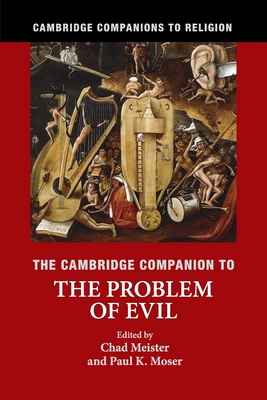
The Cambridge Companion to the Problem of Evil
Edited by Chad Meister, Paul K. Moser, 2017
- Introduction. CHAD MEISTER AND PAUL K. MOSER
Part I. Conceptual Issues and Controversies
- 1. Evil and the Meaning of Life. JOHN COTTINGHAM
- 2. Beauty and the Problem of Evil. CHARLES TALIAFERRO
- 3. Logical Arguments from Evil and Free-Will Defences. GRAHAM OPPY
- 4. God, Evil, and the Nature of Light. PAUL DRAPER
- 5. Skeptical Theism. TIMOTHY PERRINE AND STEPHEN J. WYKSTRA
- 6. Evil, Hiddenness, and Atheism. J. L. SCHELLENBERG
- 7. Anti-Theodicy. N. N. TRAKAKIS
Part II. Interdisciplinary Issues
- 8. Cosmic Evolution and Evil. CHRISTOPHER SOUTHGATE
- 9. Ancient Near Eastern Perspectives on Evil and Terror. MARGO KITTS
- 10. Judaism and the Problem of Evil. LENN E. GOODMAN
- 11. Christianity, Atonement and Evil. PAUL S. FIDDES
- 12. Islam and the Problem of Evil. TIMOTHY WINTER
- 13. Naturalism, Evil, and God. MICHAEL RUSE
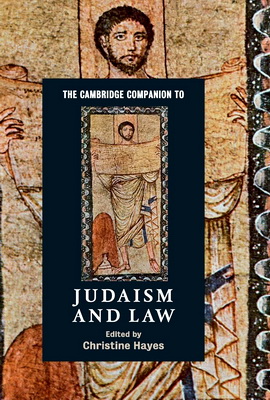
The Cambridge Companion to Judaism and Law
Edited by Christine Hayes, 2017
- Introduction: Can We Even Speak of “Judaism and Law”? Christine Hayes
Part I. Law as constitutive of biblical and premodern Jewish religious expression
- 1. Law in Biblical Israel. Chaya Halberstam
- 2. Law in Jewish Society in the Second Temple Period. Seth Schwartz
- 3. Law in Classical Rabbinic Judaism. Christine Hayes
- 4. Approaches to Foreign Law in Biblical Israel and Classical Judaism through the Medieval Period. Beth Berkowitz
- 5. Law in Medieval Judaism. Warren Zev Harvey
Part II. Enlightenment, emancipation, and the invention of Jewish “religion”
- 6. From Enlightenment to Emancipation. Verena Kasper-Marienberg
- 7. Enlightenment Conceptions of Judaism and Law. Eliyahu Stern
- 8. Rethinking Halakhah in Modern Eastern Europe: Mysticism, Antinomianism, Positivism. Menachem Lorberbaum
- 9. Antinomianism and Its Responses in the Nineteenth Century. David Ellenson
- 10. New Developments in Modern Jewish Thought: From Theology to Law and Back Again. Yonatan Y. Brafman
Part III. Judaism and the secular Jewish state
- 11. Judaism and Jewish Law in Pre-State Palestine. Amihai Radzyner
- 12. Judaism, Jewish Law, and the Jewish State in Israel. Arye Edrei
- 13. What Does It Mean for a State to Be Jewish? Daphne Barak-Erez
- 14. Fault Lines. Patricia J. Woods
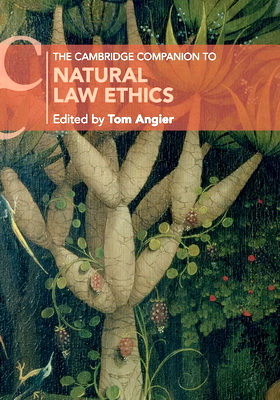
The Cambridge Companion to Natural Law Ethics
Edited by Tom Angier, 2019
- Introduction. Tom Angier
Part I - The History of Natural Law Ethics
- 1 - The Stoics. Philipp Brüllmann
- 2 – Aquinas. Steven J. Jensen
- 3 - Grotius and Pufendorf. Johan Olsthoorn
Part II - The Revival of Natural Law Ethics
- 4 - The New Natural Law Theory. Patrick Lee
- 5 - Neo-Aristotelian Ethical Naturalism. Jennifer A. Frey
Part III - Natural Law Ethics and Religion
- 6 - Natural Law in Judaism. Tamar Rudavsky
- 7 - Natural Law in Catholic Christianity. Tracey Rowland
- 8 - Natural Law in Protestant Christianity. Jennifer Herdt
- 9 - Natural Law in Islam. Anver Emon
Part IV - Applied Natural Law Ethics
- 10 - Bioethics and Natural Law. Jacqueline Laing
- 11 - Economics and Natural Law. Samuel Gregg
- 12 - Political Theory and Natural Law. Christopher Wolfe
Part V - Natural Law Ethics: Challenges and Prospects
- 13 - Challenges Facing Natural Law Ethics. Sophie Grace Chappell
- 14 - Natural Law Ethics and the Revival of Aristotelian Metaphysics. Edward Feser
- 15 - Prospects for Natural Law Ethics in the Twenty-First Century. Tom Angier
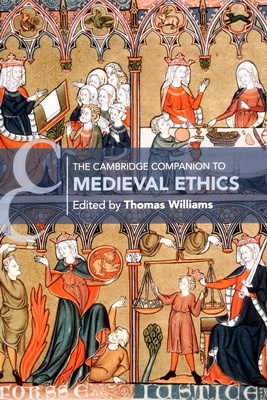
The Cambridge Companion to Medieval Ethics
Edited by Thomas Williams, 2018
- Introduction. Thomas Williams
PART I. HISTORY
- 1. From Augustine to Eriugena. Erik Kenyon
- 2. From Anselm to Albert the Great. Ian Wilks
- 3. From Thomas Aquinas to the 1350s. Eric W. Hagedorn
- 4. Islamic Ethics. Jon McGinnis
- 5. Ethics in Medieval Jewish Philosophy. T. M. Rudavsky
PART II. CONCEPTS AND THEMES
- 6. Happiness. Jeff Steele
- 7. Virtue. Thomas M. Osborne, Jr.
- 8. Law. Jean Porter
- 9. Freedom without Choice: Medieval Theories of the Essence of Freedom. Tobias Hoffmann
- 10. Practical Reasoning. M. V. Dougherty
- 11. Will and Intellect. Thomas Williams
- 12. Emotions. Martin Pickavé
- 13. Medieval Christian and Islamic Mysticism and the Problem of a “Mystical Ethics”. Amber Griffioen and Mohammad Sadegh Zahedi
- 14. Economic Ethics. Roberto Lambertini
- 15. Self- Interest, Self- Sacrifice, and the Common Good. John Marenbon
- 16. Sin and Grace. Eileen C. Sweeney
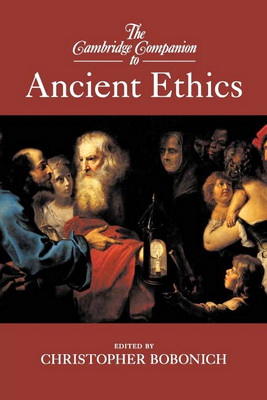
The Cambridge Companion to Ancient Ethics
Edited by Christopher Bobonich, 2017
- Introduction. Christopher Bobonich
PART I. ORIGINS
- 1. What Is Pre-Socratic Ethics? André Laks
- 2. The Historical Socrates. David Conan Wolfsdorf
PART II. PLATO
- 3. Virtue and Happiness in Plato. Daniel Devereux
- 4. Plato’s Ethical Psychology. Rachana Kamtekar
- 5. Plato on Love and Friendship. Frisbee Sheffield
PART III. ARISTOTLE
- 6. Aristotle on Virtue and Happiness. David Charles
- 7. Aristotle’s Ethical Psychology. Jessica Moss
- 8. Aristotle on Love and Friendship. Corinne A. Gartner
PART IV. THE HELLENISTICS AND BEYOND
- 9. Epicurus and the Epicureans on Ethics. Raphael Woolf
- 10. The Stoics on Virtue and Happiness. Katja Maria Vogt
- 11. The Stoics’ Ethical Psychology. Margaret Graver
- 12. Skeptical Ethics. Luca Castagnoli
- 13. Ethics in Plotinus and His Successors. Dominic J. O’Meara
PART V. THEMES
- 14. Ancient Eudaimonism and Modern Morality. Julia Annas
- 15. Partiality and Impartiality in Ancient Ethics. Richard Kraut
- 16. Elitism in Plato and Aristotle. Christopher Bobonich
- 17. Becoming Godlike. David Sedley
- 18. Horace and Practical Philosophy. Terence Irwin
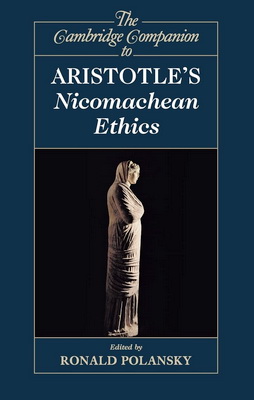
The Cambridge Companion to Aristotle's Nicomachean Ethics
Edited by Ronald Polansky, 2014
- 1 – Introduction: Ethics as Practical Science. Ronald Polansky
- 2 - Beginning and Ending with Eudaimonia. C. D. C. Reeve
- 3 - Happiness and the External Goods. T. D. Roche
- 4 - Why Is Aristotle’s Virtue of Character a Mean? Taking Aristotle at His Word (NE ii 6). Lesley Brown
- 5 - Choice and Moral Responsibility (NE iii 1–5). Susanne Bobzien
- 6 - Courage and Temperance. Giles Pearson
- 7 - The Social Virtues (NE iv). Helen Cullyer
- 8 - Giving Justice Its Due. Ronald Polansky
- 9 - The Book on Wisdom. Carlo Natali
- 10 - Phronesis and the Virtues (NE vi 12–13). Daniel C. Russell
- 11 - Was Aristotle a Humean? A Partisan Guide to the Debate. Jessica Moss
- 12 - Aristotle’s Analysis of Akratic Action. Hendrik Lorenz
- 13 - Philosophical Virtue In Defense of the Grand End. Kristen Inglis
- 14 - The Nicomachean Ethics on Pleasure. Verity Harte
- 15 - Finding Oneself with Friends. Patrick Lee Miller
- 16 - Competing Ways of Life and Ring Composition (NE x 6–8). Thornton Lockwood
- 17 - The Relationship between Aristotle’s Ethical and Political Discourses (NE x 9). Rachana Kamtekar
- 18 - Protreptic Aspects of Aristotle’s Nicomachean Ethics. D. S. Hutchinson, Monte Ransome Johnson
- 19 - The Eudemian Ethics and Its Controversial Relationship to the Nicomachean Ethics. Lawrence Jost
- 20 - Topical Bibliography to Aristotle’s Nicomachean Ethics. Thornton Lockwood
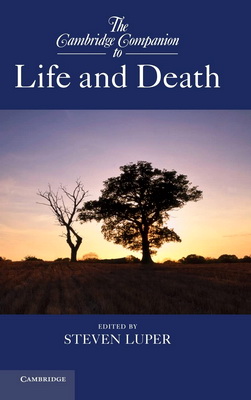
The Cambridge Companion to Life and Death
Edited by Steven Luper, 2014
- Introduction. Steven Luper
Part I. The metaphysics of life and death
- 1. The nature of life. Mark A. Bedau
- 2. The nature of people. Eric T. Olson
- 3. Persistence and time. Katherine Hawley
- 4. The malleability of identity. Marya Schechtman
- 5. The nature of human death. David DeGrazia
Part II. The significance of life and death
- 6. Assessing lives. Noah Lemos
- 7. On the length of a good life. Eyjólfur K. Emilsson
- 8. Mortal harm. John Martin Fischer
- 9. When do we incur mortal harm? Jens Johansson
- 10. The symmetry problem. James Warren
- 11. Posthumous harm. Simon Keller
- 12. Life’s meaning. Steven Luper
Part III. The ethics of life and death
- 13. Enhancing humanity. Nicholas Agar
- 14. Procreating. David Archard
- 15. Abortion. Michael Tooley
- 16. Killing ourselves. Thomas E. Hill, Jr.
- 17. Killing in self-defense. Kadri Vihvelin
- 18. Imperfect aiding. Matthew Hanser
- 19. Killing and extinction. Krister Bykvist
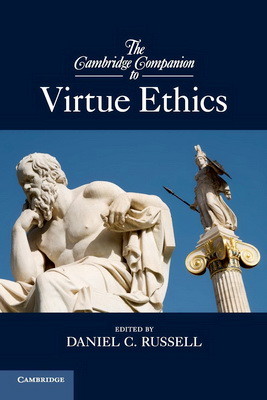
The Cambridge Companion to Virtue Ethics
Edited by Daniel C. Russell, 2013
- Introduction: Virtue ethics in modern moral philosophy. Daniel C. Russell
- 1 - Virtue ethics, happiness, and the good life. Daniel C. Russell
- 2 - Ancient virtue ethics: An overview with an emphasis on practical wisdom. Rachana Kamtekar
- 3 - Virtueethics and the Chinese Confucian tradition. Philip J. Ivanhoe
- 4 - Virtue ethics in the medieval period. Jean Porter
- 5 - Hume'sanatomy of virtue. Paul Russell
- 6 - The historic decline of virtue ethics. Dorothea Frede
- 7 - Virtue ethics in the twentieth century. Timothy Chappell
- 8 - Virtueethics and right action. Liezl van Zyl
- 9 - Virtue ethics and bioethics. Justin Oakley
- 10 - Environmental virtue ethics: What it is and what it needs to be. Matt Zwolinski, David Schmidtz
- 11 - The virtue approach to business ethics. Edwin Hartman
- 12 - Virtue and politics. Mark LeBar
- 13 - The situationist critique of virtue ethics. Gopal Sreenivasan
- 14 - The definition of virtue ethics. Christine Swanton
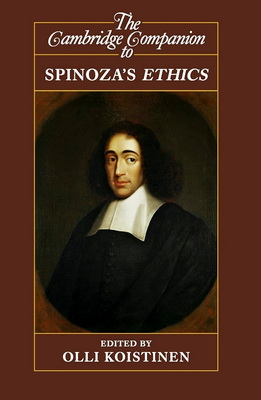
The Cambridge Companion to Spinoza's Ethics
Edited by Olli Koistinen, 2009
- Introduction. Olli Koistinen and Valtteri Viljanen
- 1. The Textual History of Spinoza's Ethics. Piet Steenbakkers
- 2. The Geometrical Order in the Ethics. Piet Steenbakkers
- 3. Spinoza's Ontology. Valtteri Viljanen
- 4. Substance Monism and Identity Theory in Spinoza. Andreas Schmidt
- 5. Spinoza and the Stoics on Substance Monism. Jon Miller
- 6. Spinoza on Necessity. Charles Jarrett
- 7. Knowledge in Spinoza's Ethics. Diane Steinberg
- 8. Spinoza on Action. Olli Koistinen
- 9. The Anatomy of the Passions. Michael Lebuffe
- 10. Freedom, Slavery, and the Passions. Susan James
- 11. Spinoza's Theory of the Good. Andrew Youpa
- 12. The Power of Reason in Spinoza. Martin Lin
- 13. Spinoza on the Essence of the Human Body and the Part of the Mind That Is Eternal. Don Garrett
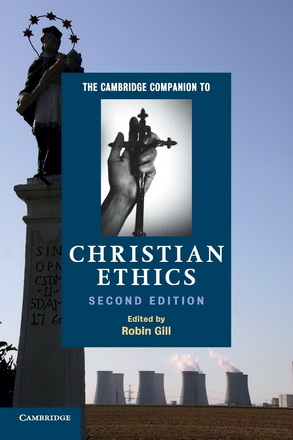
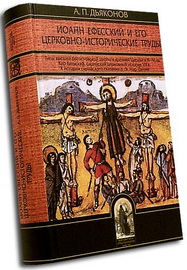
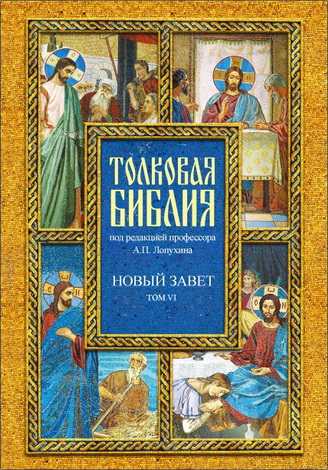

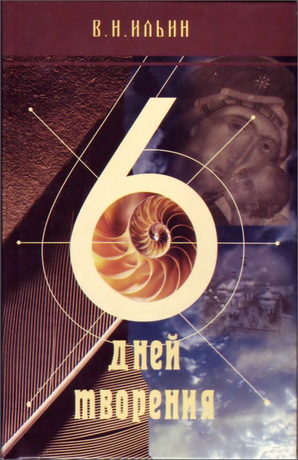
Комментарии (2 комментария)
Большое спасибо!
Поразительные труды по этике различных направлений философии и христианской мысли!